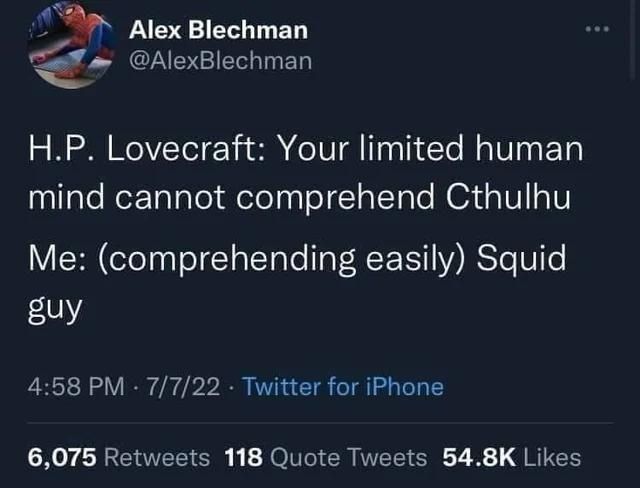Pluralistic: The real (economic) AI apocalypse is nigh (27 Sep 2025)
Today's links The real (economic) AI apocalypse is nigh: Sweating (the assets) to the oldies. Hey look at this: Delights to delectate. Object permanence: Dying on the job; Google audiocomplete blacklist; Lockheed Martin v. 'gathering information.' Upcoming appearances: Where to find me. Recent appearances: Where I've been. Latest books: You keep readin' em, I'll keep writin' 'em. Upcoming books: Like I said, I'll keep writin' 'em. Colophon: All the rest. The real (economic) AI apocalypse is nigh (permalink) Like you, I'm sick to the back teeth of talking about AI. Like you, I keep getting dragged into discussions of AI. Unlike you‡, I spent the summer writing a book about why I'm sick of writing about AI⹋, which Farrar, Straus and Giroux will publish in 2026. ‡probably ⹋"The Reverse Centaur's Guide to AI" A week ago, I turned that book into a speech, which I delivered as the annual Nordlander Memorial Lecture at Cornell, where I'm an AD White Professor-at-Large. This was my first-ever speech about AI and I wasn't sure how it would go over, but thankfully, it went great and sparked a lively Q&A. One of those questions came from a young man who said something like "So, you're saying a third of the stock market is tied up in seven AI companies that have no way to become profitable and that this is a bubble that's going to burst and take the whole economy with it?" I said, "Yes, that's right." He said, "OK, but what can we do about that?" So I re-iterated the book's thesis: that the AI bubble is driven by monopolists who've conquered their markets and have no more growth potential, who are desperate to convince investors that they can continue to grow by moving into some other sector, e.g. "pivot to video," crypto, blockchain, NFTs, AI, and now "super-intelligence." Further: the topline growth that AI companies are selling comes from replacing most workers with AI, and re-tasking the surviving workers as AI babysitters ("humans in the loop"), which won't work. Finally: AI cannot do your job, but an AI salesman can 100% convince your boss to fire you and replace you with an AI that can't do your job, and when the bubble bursts, the money-hemorrhaging "foundation models" will be shut off and we'll lose the AI that can't do your job, and you will be long gone, retrained or retired or "discouraged" and out of the labor market, and no one will do your job. AI is the asbestos we are shoveling into the walls of our society and our descendants will be digging it out for generations: https://pluralistic.net/2025/05/27/rancid-vibe-coding/#class-war The only thing (I said) that we can do about this is to puncture the AI bubble as soon as possible, to halt this before it progresses any further and to head off the accumulation of social and economic debt. To do that, we have to take aim at the material basis for the AI bubble (creating a growth story by claiming that defective AI can do your job). "OK," the young man said, "but what can we do about the crash?" He was clearly very worried. "I don't think there's anything we can do about that. I think it's already locked in. I mean, maybe if we had a different government, they'd fund a jobs guarantee to pull us out of it, but I don't think Trump'll do that, so –" "But what can we do?" We went through a few rounds of this, with this poor kid just repeating the same question in different tones of voice, like an acting coach demonstrating the five stages of grieving using nothing but inflection. It was an uncomfortable moment, and there was some decidedly nervous chuckling around the room as we pondered the coming AI (economic) apocalypse, and the fate of this kid graduating with mid-six-figure debts into an economy of ashes and rubble. I firmly believe the (economic) AI apocalypse is coming. These companies are not profitable. They can't be profitable. They keep the lights on by soaking up hundreds of billions of dollars in other people's money and then lighting it on fire. Eventually those other people are going to want to see a return on their investment, and when they don't get it, they will halt the flow of billions of dollars. Anything that can't go on forever eventually stops. This isn't like the early days of the web, or Amazon, or any of those other big winners that lost money before becoming profitable. Those were all propositions with excellent "unit economics" – they got cheaper with every successive technological generation, and the more customers they added, the more profitable they became. AI companies have – in the memorable phraseology of Ed Zitron – "dogshit unit-economics." Each generation of AI has been vastly more expensive than the previous one, and each new AI customer makes the AI companies lose more money: https://pluralistic.net/2025/06/30/accounting-gaffs/#artificial-income This week, no less than the Wall Street Journal published a lengthy, well-reported story (by Eliot Brown and Robbie Whelan) on the catastrophic finances of AI companies: https://www.wsj.com/tech/ai/ai-bubble-building-spree-55ee6128?st=efV1EF&reflink=article_email_share The WSJ writers compare the AI bubble to other bubbles, like Worldcom's fraud-soaked fiber optic bonanza (which saw the company's CEO sent to prison, where he eventually died), and conclude that the AI bubble is vastly larger than any other bubble in recent history. The data-center buildout has genuinely absurd finances – there are data-center companies that are collateralizing their loans by staking their giant Nvidia GPUs as collateral. This is wild: there's pretty much nothing (apart from fresh-caught fish) that loses its value faster than silicon chips. That goes triple for GPUs used in AI data-centers, where it's normal for tens of thousands of chips to burn out over a single, 54-day training run: https://techblog.comsoc.org/2024/11/25/superclusters-of-nvidia-gpu-ai-chips-combined-with-end-to-end-network-platforms-to-create-next-generation-data-centers/ Talk about sweating your assets! That barely scratches the surface of the funny accounting in the AI bubble. Microsoft "invests" in Openai by giving the company free access to its servers. Openai reports this as a ten billion dollar investment, then redeems these "tokens" at Microsoft's data-centers. Microsoft then books this as ten billion in revenue. That's par for the course in AI, where it's normal for Nvidia to "invest" tens of billions in a data-center company, which then spends that investment buying Nvidia chips. The the same chunk of money being energetically passed back and forth between these closely related companies, all of which claim it as investment, as an asset, or as revenue (or all three). The Journal quotes David Cahn, a VC from Sequoia, who says that for AI companies to become profitable, they would have to sell us $800 billion worth of services over the life of today's data centers and GPUs. Not only is that a very large number – it's also a very short time. AI bosses themselves will tell you that these data centers and GPUs will be obsolete practically from the moment they start operating. Mark Zuckerberg says he's prepared to waste "a couple hundred billion dollars" on misspent AI investments: https://www.businessinsider.com/mark-zuckerberg-meta-risk-billions-miss-superintelligence-ai-bubble-2025-9 Bain & Co says that the only way to make today's AI investments profitable is for the sector to bring in $2 trillion by 2030 (the Journal notes that this is more than the combined revenue of Amazon, Google, Microsoft, Apple Nvidia and Meta): https://www.bain.com/about/media-center/press-releases/20252/$2-trillion-in-new-revenue-needed-to-fund-ais-scaling-trend—bain–companys-6th-annual-global-technology-report/ How much money is the AI industry making? Morgan Stanley says it's $45b/year. But that $45b is based on the AI industry's own exceedingly cooked books, where annual revenue is actually annualized revenue, an accounting scam whereby a company chooses its best single revenue month and multiplies it by 12, even if that month is a wild outlier: https://www.wheresyoured.at/the-haters-gui/ Industry darlings like Coreweave (a middleman that rents out data-centers) are sitting on massive piles of debt, secured by short-term deals with tech companies that run out long before the debts can be repaid. If they can't find a bunch of new clients in a couple short years, they will default and collapse. Today's AI bubble has absorbed more of the country's wealth and represents more of its economic activity than historic nation-shattering bubbles, like the 19th century UK rail bubble. A much-discussed MIT paper found that 95% of companies that had tried AI had either nothing to show for it, or experienced a loss: https://www.technologyreview.com/2019/01/25/1436/we-analyzed-16625-papers-to-figure-out-where-ai-is-headed-next/ A less well-known U Chicago paper finds that AI has "no significant impact on workers’ earnings, recorded hours, or wages": https://papers.ssrn.com/sol3/papers.cfm?abstract_id=5219933 Anything that can't go on forever eventually stops. Trump might bail out the AI companies, but for how long? They are incinerating money faster than practically any other human endeavor in history, with precious little to show for it. During my stay at Cornell, one of the people responsible for the university's AI strategy asked me what I thought the university should be doing about AI. I told them that they should be planning to absorb the productive residue that will be left behind after the bubble bursts: https://locusmag.com/feature/commentary-cory-doctorow-what-kind-of-bubble-is-ai/ Plan for a future where you can buy GPUs for ten cents on the dollar, where there's a buyer's market for hiring skilled applied statisticians, and where there's a ton of extremely promising open source models that have barely been optimized and have vast potential for improvement. There's plenty of useful things you can do with AI. But AI is (as Princeton's Arvind Narayanan and Sayash Kapoor, authors of AI Snake Oil put it), a normal technology: https://knightcolumbia.org/content/ai-as-normal-technology That doesn't mean "nothing to see here, move on." It means that AI isn't the bow-wave of "impending superintelligence." Nor is it going to deliver "humanlike intelligence." It's a grab-bag of useful (sometimes very useful) tools that can sometimes make workers' lives better, when workers get to decide how and when they're used. The most important thing about AI isn't its technical capabilities or limitations. The most important thing is the investor story and the ensuing mania that has teed up an economical catastrophe that will harm hundreds of millions or even billions of people. AI isn't going to wake up, become superintelligent and turn you into paperclips – but rich people with AI investor psychosis are almost certainly going to make you much, much poorer. (Image: TechCrunch, CC BY 2.0; Cryteria, CC BY 3.0; modified) Hey look at this (permalink) EU ministers reach 'compromise' on digital euro roadmap https://www.reuters.com/business/finance/eu-ministers-seek-agreement-digital-euro-be-independent-visa-mastercard-2025-09-19/ Amazon will pay $2.5 billion to settle the FTC’s Prime lawsuit https://www.theverge.com/news/785744/amazon-ftc-prime-subscription-settlment Conservative Dem Compares Ad About Her Corporate Donations to ‘Political Violence’ https://prospect.org/politics/2025-09-25-conservative-dem-ad-corporate-donations-violence-bains-california/ Monopoly Utilities Ousted America's Best Regulator https://economicpopulist.substack.com/p/monopoly-utilities-ousted-americas WNYC offers free programs to stations affected by funding cuts https://current.org/2025/09/wnyc-offers-free-programs-to-stations-affected-by-funding-cuts/ Object permanence (permalink) #20yrsago Financial Times: WIPO’s webcaster treaty is a disaster https://www.ft.com/content/441306be-2eb6-11da-9aed-00000e2511c8 #15yrsago Google’s autocomplete blacklist https://www.2600.com/googleblacklist/ #15yrsago FBI ignores DoJ report, raids activists, arrests Time Person of the Year https://www.democracynow.org/2010/9/27/fbi_raids_homes_of_anti_war #15yrsago Meta-textual analysis of mainstream science reporting https://www.theguardian.com/science/the-lay-scientist/2010/sep/24/1 #15yrsago Lockheed Martin sign prohibits sketching and “gathering information” https://www.flickr.com/photos/jef/5028187145/ #5yrsago Ransomware for coffee makers https://pluralistic.net/2020/09/27/junky-styling/#java-script #5yrsago The joys of tailoring https://pluralistic.net/2020/09/27/junky-styling/#inseams #1yrago Return to office and dying on the job https://pluralistic.net/2024/09/27/sharpen-your-blades-boys/#disciplinary-technology Upcoming appearances (permalink) Boston: Enshittification with Randall Munroe (Brattle Theater), Oct 7 https://www.eventbrite.com/e/cory-doctorow-at-the-brattle-theatre-tickets-1591235180259?aff=oddtdtcreator DC: Enshittification with Rohit Chopra (Politics and Prose), Oct 8 https://politics-prose.com/cory-doctorow-10825 NYC: Enshittification with Lina Khan (Brooklyn Public Library), Oct 9 https://www.bklynlibrary.org/calendar/cory-doctorow-discusses-central-library-dweck-20251009-0700pm New Orleans: DeepSouthCon63, Oct 10-12 http://www.contraflowscifi.org/ New Orleans: Enshittification at Octavia Books, Oct 12 https://www.octaviabooks.com/event/enshittification-cory-doctorow Chicago: Enshittification with Anand Giridharadas (Chicago Humanities), Oct 15 https://www.oldtownschool.org/concerts/2025/10-15-2025-kara-swisher-and-cory-doctorow-on-enshittification/ Los Angeles: Enshittification with David Dayen (Diesel), Oct 16 https://dieselbookstore.com/event/2025-10-16/cory-doctorow-enshittification San Francisco: Enshittification at Public Works with Jenny Odell (The Booksmith), Oct 20 https://app.gopassage.com/events/doctorow25 PDX: Enshittification at Powell's, Oct 21 https://www.powells.com/events/cory-doctorow-10-21-25 Seattle: Enshittification and the Rot Economy, with Ed Zitron (Clarion West), Oct 22 https://www.clarionwest.org/event/2025-deep-dives-cory-doctorow/ Madrid: Conferencia EUROPEA 4D (Virtual), Oct 28 https://4d.cat/es/conferencia/ Miami: Enshittification at Books & Books, Nov 5 https://www.eventbrite.com/e/an-evening-with-cory-doctorow-tickets-1504647263469 Miami: Cloudfest, Nov 6 https://www.cloudfest.com/usa/ Burbank: Burbank Book Festival, Nov 8 https://www.burbankbookfestival.com/ Recent appearances (permalink) Enshittification (Cornell) https://ecornell.cornell.edu/keynotes/view/K091225/ Escaping Big Tech, Privacy Battles & “Enshittification” (Revolution.social) https://www.youtube.com/watch?v=exvpetQRSVo Nerd Harder! (This Week in Tech) https://twit.tv/shows/this-week-in-tech/episodes/1047 Latest books (permalink) "Picks and Shovels": a sequel to "Red Team Blues," about the heroic era of the PC, Tor Books (US), Head of Zeus (UK), February 2025 (https://us.macmillan.com/books/9781250865908/picksandshovels). "The Bezzle": a sequel to "Red Team Blues," about prison-tech and other grifts, Tor Books (US), Head of Zeus (UK), February 2024 (the-bezzle.org). "The Lost Cause:" a solarpunk novel of hope in the climate emergency, Tor Books (US), Head of Zeus (UK), November 2023 (http://lost-cause.org). "The Internet Con": A nonfiction book about interoperability and Big Tech (Verso) September 2023 (http://seizethemeansofcomputation.org). Signed copies at Book Soup (https://www.booksoup.com/book/9781804291245). "Red Team Blues": "A grabby, compulsive thriller that will leave you knowing more about how the world works than you did before." Tor Books http://redteamblues.com. "Chokepoint Capitalism: How to Beat Big Tech, Tame Big Content, and Get Artists Paid, with Rebecca Giblin", on how to unrig the markets for creative labor, Beacon Press/Scribe 2022 https://chokepointcapitalism.com Upcoming books (permalink) "Canny Valley": A limited edition collection of the collages I create for Pluralistic, self-published, September 2025 "Enshittification: Why Everything Suddenly Got Worse and What to Do About It," Farrar, Straus, Giroux, October 7 2025 https://us.macmillan.com/books/9780374619329/enshittification/ "Unauthorized Bread": a middle-grades graphic novel adapted from my novella about refugees, toasters and DRM, FirstSecond, 2026 "Enshittification, Why Everything Suddenly Got Worse and What to Do About It" (the graphic novel), Firstsecond, 2026 "The Memex Method," Farrar, Straus, Giroux, 2026 "The Reverse-Centaur's Guide to AI," a short book about being a better AI critic, Farrar, Straus and Giroux, 2026 Colophon (permalink) Today's top sources: James Boyle (https://www.thepublicdomain.org/). Currently writing: "The Reverse Centaur's Guide to AI," a short book for Farrar, Straus and Giroux about being an effective AI critic. FIRST DRAFT COMPLETE AND SUBMITTED. A Little Brother short story about DIY insulin PLANNING This work – excluding any serialized fiction – is licensed under a Creative Commons Attribution 4.0 license. That means you can use it any way you like, including commercially, provided that you attribute it to me, Cory Doctorow, and include a link to pluralistic.net. https://creativecommons.org/licenses/by/4.0/ Quotations and images are not included in this license; they are included either under a limitation or exception to copyright, or on the basis of a separate license. Please exercise caution. How to get Pluralistic: Blog (no ads, tracking, or data-collection): Pluralistic.net Newsletter (no ads, tracking, or data-collection): https://pluralistic.net/plura-list Mastodon (no ads, tracking, or data-collection): https://mamot.fr/@pluralistic Medium (no ads, paywalled): https://doctorow.medium.com/ Twitter (mass-scale, unrestricted, third-party surveillance and advertising): https://twitter.com/doctorow Tumblr (mass-scale, unrestricted, third-party surveillance and advertising): https://mostlysignssomeportents.tumblr.com/tagged/pluralistic "When life gives you SARS, you make sarsaparilla" -Joey "Accordion Guy" DeVilla READ CAREFULLY: By reading this, you agree, on behalf of your employer, to release me from all obligations and waivers arising from any and all NON-NEGOTIATED agreements, licenses, terms-of-service, shrinkwrap, clickwrap, browsewrap, confidentiality, non-disclosure, non-compete and acceptable use policies ("BOGUS AGREEMENTS") that I have entered into with your employer, its partners, licensors, agents and assigns, in perpetuity, without prejudice to my ongoing rights and privileges. You further represent that you have the authority to release me from any BOGUS AGREEMENTS on behalf of your employer. ISSN: 3066-764X





















